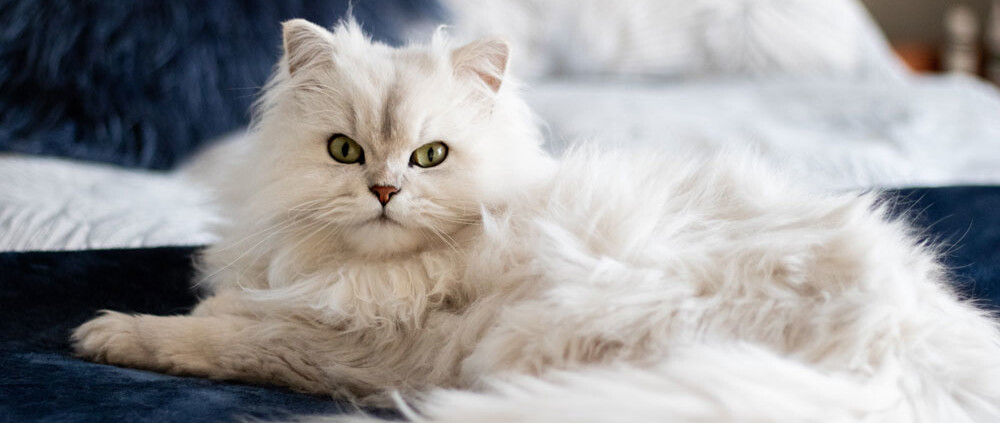Cat Not Eating? Understanding the Causes and When to Seek Help
Cats are weird and I mean that in the best way possible and with all the love in the world! They don’t let us know when something’s wrong. Most of the time they’re just sending of this “something is off” signal that we notice because we’re their cat-parents. So, when your cat stops eating, it’s one of the first “red flag” clues that something may not be right more.
If you’re reading this, your cat probably hasn’t just skipped one meal. It’s been long enough to make you stop and wonder if you should contact the vet or not. Sometimes, it’s simple maybe they’re just being picky at your food choices for the month or not that hungry. But other times, it can point to something deeper.
My goal with this article is to help you break down and figure out what might be causing it and when it’s time to check in with your vet.
Why is My Cat Not Eating – 101
Typically, when people come to us with this concern, we usually start by looking at things in a checklist style format. There are a lot of reasons a cat might turn up their nose at food, and while some are simple, others could be serious causes for concern.
When we “check” up on a cat, we start with the basic ones first. These are the ones that we think you can do at home:
- Dental pain: Toothaches, sore gums, or mouth ulcers can make chewing painful. We start by checking their mouth:
- Do the teeth look rough or broken?
- Are the gums red, swollen, or bleeding?
- Do they have any cuts in or around their mouth?
- Does your cat have bad breath? – this could be a gum infection or tartar buildup.
- Upset stomach: Nausea, constipation, or general tummy trouble can kill an appetite fast. Have they been using the litter box normally? Throwing up? Gagging more than usual?
- Stress or anxiety: Cats, like dogs, are creatures of habit. A move, new pet, or even a new food bowl can throw them off their routine. Seriously… a pickle on the floor will stress them out sometimes.
- Food aversion or pickiness: Some cats just decide they’re “over” a certain flavor or texture. Try switching up the flavor, warming it slightly, or offering something softer.
Now, once that’s done, we have to look at the ones you can’t do. These are the ones that require lab tests, etc.
- Kidney or liver disease: Both can cause nausea and appetite loss. Long-term loss of appetite can even lead to liver problems like hepatic lipidosis. This isn’t something you can test at home, but it is something we can check here at the clinic with simple bloodwork.
- Pancreatitis: Inflammation of the pancreas can cause abdominal pain, vomiting, and a lack of interest in food. We typically check for this through blood tests that look for enzyme changes, sometimes this is paired with an ultrasound for a closer look.
- Infection: Any infection can make a cat feel lousy. We check for small cuts, scabs, or swelling. Even dental or ear infections can mess with their appetite.
Tips to Encourage Eating
In laymen terms, that’s what we look at when a cat refuses to eat. But if you’ve gone through that checklist and they still won’t touch their food, it’s time to try a few tricks to get them interested again.
We’ve all seen those Instagram videos that say things like “Explain this to the cat sitter,” followed by a list of over-the-top feeding instructions: Put the food in the pink bowl, stir it with the blue spoon, and pretend to taste it first. Funny, but honestly? Some cats are exactly that particular about their eating habits.
- Warm the food: Slightly warming canned food makes it smell stronger and more appealing, the slight temperature change also makes it appealing to cats.
- Try new flavors or textures: Sometimes they just want variety, have you tried to give them different types of food? Can you mix hard with soft food together?
- Hand-feed if needed: Your presence can help them relax and start eating. Sometimes, when a pet has to stay with us overnight, our nurses will hand feed them small bits and pieces of food at a time. It’s like when you’re sick at home, and your partner brings you a little bite of something.
Now, if your cat is still refusing food, especially if they’re also vomiting, losing weight, or acting lethargic – don’t wait it out. Early diagnosis and treatment can make a huge difference. Bring them to us, we’ll help you figure out a possible diagnostic, or maybe just send you back with a new type of food and some snacks!



